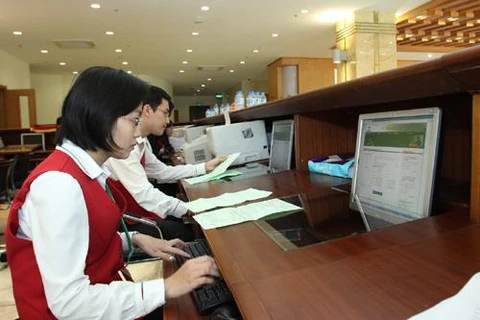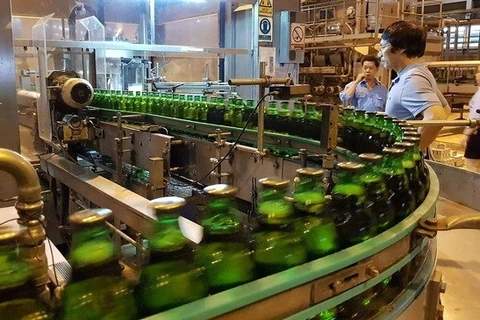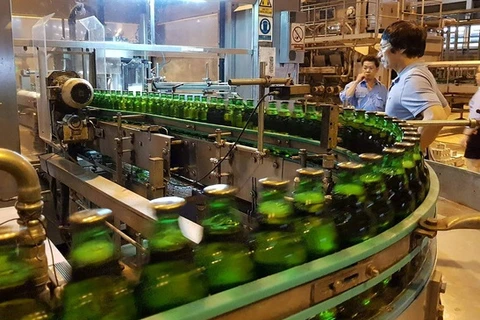Hanoi (VNA) – Shortcomings in terms of institutions and laws are the main cause of the sluggish restructuring of State-owned enterprises (SOEs), which may fail to fulfill many important targets by the end of 2020, according to the Central Institute for Economic Management (CIEM).
At a workshop in Hanoi on June 12, head of the CIEM’s department for enterprise reform and development research Pham Duc Trung said by the end of next year, SOEs are hoped to have a more reasonable structure through equitisation and divestment of State capital.
Vietnam also expects to complete the divestment of State capital from firms in which the State doesn’t need to hold capital, improve businesses’ performance, and thoroughly handle poor-performing and loss-making SOEs by the end of 2020.
Trung said although the targeted number of equitised firms may still be reached, many important targets will be definitely unable to be fulfilled, including the attraction of private investment in SOEs, and the investment of State capital divested from SOEs into the fields that really need the State’s presence.
Therefore, the target of a more reasonable structure for SOEs hasn’t been reached, he said, adding that State capital is still present in almost all business fields in the economy.
[Equitisation of State-owned enterprises remains slow: official]
The State economic sector hasn’t clearly played its role as the one that leads and creates momentum for economic development and is the important force for the State to orient and regulate the economy, he said.
Noting institutional and legal shortcomings that have hampered the SOE restructuring, the CIEM official said the State’s ownership and management haven’t been separated, posing risks of unequal treatment and unfair competition in reality.
Additionally, the State’s investment in socio-economic development and serving other economic sectors is still mixed with its investment in SOEs and SOEs’ investment.
Le Xuan Ba, an economic expert, said in the State economic sector, SOEs are the most crucial element but they have performed poorly. Meanwhile, these businesses are still considered to be the main force in the economy.
This viewpoint is wrong right from the beginning, so the old mindset should not be sustained, he added.
Trung, from the CIEM, said to improve the State economic sector’s efficiency, Vietnam needs to detail the role of this sector, which should be tasked with ensuring the infrastructure system and essential public services for activities of other economic sectors; ensuring defence, national security and a safe business environment; and equally and efficiently allocating assets owned by the whole people to other sectors.
Economic expert Tran Tien Cuong said it is necessary to increase using the State-issued macro-economic policies instead of using SOEs as a tool to regulate the macro-economy. SOEs should only be used as a support tool together with policies to regulate the macro-economy, and this role must be institutionalised and made transparent, he added.
Cuong also called for the enhancement of the State’s monitoring and auditing of its capital and assets, along with stronger analysis, assessment, discovery and warning of SOEs’ problems.-VNA
VNA

























